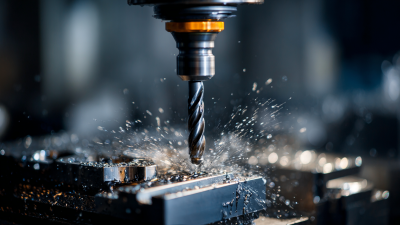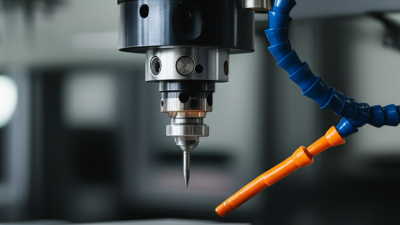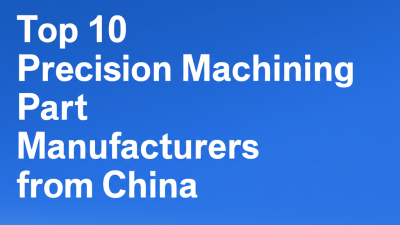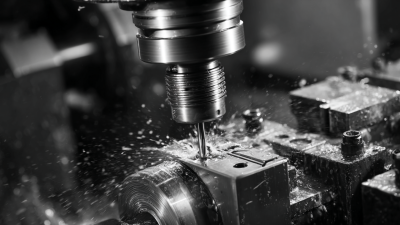In today’s manufacturing landscape, the adoption of advanced materials and efficient processes is crucial for maintaining a competitive edge. Stamping Aluminum Sheet Metal has emerged as a leading technique, offering numerous advantages that make it a sound investment for many industries. According to a recent report by Grand View Research, the global sheet metal fabrication market is projected to reach $265.6 billion by 2025, driven largely by the lightweight and corrosion-resistant properties of aluminum. Moreover, the increased demand for lightweight components in the automotive and aerospace sectors underscores the rising preference for aluminum stamping. This manufacturing process not only enhances production efficiency but also significantly reduces waste, aligning with sustainability goals that are becoming imperative in modern manufacturing practices. As we explore the seven compelling reasons why Stamping Aluminum Sheet Metal is your best investment, it's clear that its benefits extend far beyond mere cost savings, influencing product quality and market adaptability.

Aluminum sheet metal stamping has gained significant traction in various industries, becoming a top choice for manufacturers looking to optimize efficiency and cost-effectiveness. One of the key factors driving this trend is aluminum’s exceptional strength-to-weight ratio. Compared to other metals, aluminum offers durability without adding excessive weight to products, which is particularly advantageous in industries such as automotive and aerospace where performance and fuel efficiency are critical. This allows businesses to create lightweight components that do not compromise on strength, providing a competitive edge in the market.
Another reason for the surging popularity of aluminum sheet metal stamping is its versatility. Aluminum can be easily molded into complex shapes and designs, allowing for greater creativity in product development. This adaptability makes it suitable for a wide range of applications, from intricate electronic housings to robust structural components. Additionally, the inherent corrosion resistance of aluminum contributes to the longevity of stamped parts, reducing the need for frequent replacements and maintenance. As industries continue to prioritize innovation and sustainability, aluminum sheet metal stamping is positioned as a leading solution that meets manufacturing demands while supporting environmental goals.
| Factor | Description | Benefit |
|---|---|---|
| Cost-Effectiveness | Aluminum stamping reduces material waste and labor costs. | Lower production costs improve profit margins. |
| Versatility | Can be used for various applications across multiple industries. | Broadens market reach and product offerings. |
| Lightweight | Aluminum is lighter than steel but offers similar strength. | Improves fuel efficiency in transportation applications. |
| Corrosion Resistance | Aluminum naturally forms a protective oxide layer. | Extends product lifespan and reduces maintenance costs. |
| Rapid Production | Stamping allows for high-volume production in short times. | Meet tight deadlines and increase output. |
| Recyclability | Aluminum is 100% recyclable without quality loss. | Sustainability appeal to eco-conscious consumers. |
| Precision Engineering | Stamping processes ensure high precision and repeatability. | Enhances product quality and reduces defect rates. |
When it comes to metal fabrication, stamping aluminum sheet metal stands out as a cost-effective solution. Aluminum's lightweight nature reduces shipping costs by up to 30%, making it an attractive option for manufacturers looking to cut expenses without compromising quality. According to a report by the Aluminum Association, aluminum is not only recyclable but also allows for a reduction in energy consumption by up to 95% when compared to primary production, leading to substantial long-term savings.
**Tip:** When considering aluminum for your projects, always compare weight vs. cost. The initial investment might seem higher than other materials, but the long-term benefits—including durability and low maintenance—make aluminum an economical choice.
Furthermore, with advancements in stamping technology, production efficiency has greatly improved. Companies report a 20% increase in output due to innovative processes. This efficiency translates into lower labor costs and faster turnaround times, ensuring your projects stay on schedule without breaking the bank.
**Tip:** Be sure to seek suppliers who utilize the latest stamping technologies. This can not only enhance your production quality but also lead to better pricing options as they pass on savings from their increased efficiency.

Aluminum sheet metal stamping offers remarkable versatility in design, allowing for customization across a wide range of applications. With the ability to create intricate shapes and precise dimensions, manufacturers can tailor their aluminum sheets to meet specific requirements, whether for automotive components, construction elements, or consumer products. The lightweight nature of aluminum, combined with its corrosion resistance, makes it an ideal choice for industries seeking both durability and aesthetic appeal.
One of the key advantages of stamping aluminum sheets is the adaptability in production processes. From prototyping to mass production, stamped aluminum can be efficiently scaled to suit various project sizes. Techniques such as CNC machining and laser cutting further enhance design possibilities, enabling unique patterns and features that cater to clients' specifications. This customization not only elevates the functionality of the end product but also allows businesses to differentiate themselves in a competitive market.
This bar chart illustrates the versatility and customization potential of stamped aluminum sheet metal across various applications. The data showcases seven key reasons driving the investment in aluminum stamping, highlighting the impact of design versatility, cost-effectiveness, weight reduction, strength, sustainability, aesthetic appeal, and fabrication speed.
When considering the long-term benefits of aluminum stamping,
durability and strength take center stage.
Aluminum is known for its impressive strength-to-weight ratio, making it an ideal material for a wide range of applications.
Unlike traditional metals that may corrode or weaken over time, aluminum resists deterioration from environmental factors such as moisture and chemicals.
This inherent resilience ensures that products manufactured through aluminum stamping will maintain their integrity over many years,
leading to less frequent replacements and lower maintenance costs.
Moreover, the stamping process itself enhances the material's properties.
By utilizing precise techniques to shape aluminum sheets, manufacturers can achieve components that not only fit perfectly but also withstand heavy wear and tear.
This level of precision yields components that perform reliably under stress, making them suitable for demanding industries like aerospace and automotive.
As businesses look towards investments that promise longevity and performance,
the strength and durability of stamped aluminum components stand out as a strategic choice for future growth.

Aluminum sheet metal stamping is not only a cost-effective solution for various manufacturing processes but also a significant boon for sustainability. As industries move towards greener practices, aluminum stands out as a highly recyclable material. When aluminum sheet metal is stamped, it can easily be recycled and repurposed after its initial use, reducing the need for new raw materials and minimizing environmental impact. This cycle of reuse aligns with eco-friendly practices, promoting a circular economy that conserves resources and reduces waste.
Moreover, the lightweight nature of aluminum contributes to lower energy consumption in transportation and production. Products made from stamped aluminum are easier to move and require less energy to manufacture compared to heavier materials. This inherent efficiency, coupled with the ability to produce complex shapes and designs without extensive processing, makes aluminum stamping a smart, sustainable investment. Companies that prioritize aluminum stamping not only meet modern sustainability goals but also appeal to environmentally conscious consumers, reinforcing their commitment to responsible manufacturing practices.






